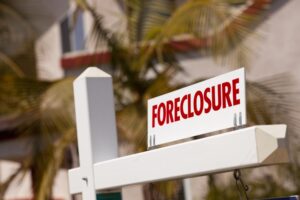Understanding Foreclosure and Alternative Solutions
When homeowners face the threat of foreclosure, the situation can quickly become overwhelming and stressful. It often seems as though surrendering the property via a short sale is the only feasible option left. However, this is rarely the case. Various legal avenues and financial strategies can help protect your interests and potentially keep your home. Even if a loan modification request has been denied, it is crucial to understand that the battle is not over. Engaging a foreclosure or bankruptcy lawyer early in the process can be instrumental in defending your rights and exploring alternative solutions.
This article delves into the complexities of foreclosure, the role of legal counsel, and the diverse strategies available to homeowners in distress. It also highlights the importance of prompt action once foreclosure proceedings commence, as every day can significantly impact the outcome.
What Is Foreclosure?
Foreclosure is a legal process by which a lender attempts to recover the balance of a loan from a borrower who has stopped making payments. Typically, this involves selling the property used as collateral for the loan. Foreclosure can severely impact a homeowner’s credit and future financial opportunities. Understanding the foreclosure timeline and the legal requirements lenders must follow is essential for any homeowner facing this challenge.
Common Causes of Foreclosure
Various factors can lead to foreclosure, including job loss, medical emergencies, divorce, or other unforeseen financial hardships. In today’s unpredictable economic climate, many families find themselves unable to meet their mortgage obligations despite their best efforts. Recognizing the early warning signs of financial trouble and seeking assistance quickly can prevent the situation from escalating.
Loan Modification: Not Always the Final Solution
A loan modification is often the first recourse for homeowners struggling with mortgage payments. It involves changing the terms of the loan to make monthly payments more manageable. Modifications may include reducing the interest rate, extending the loan term, or even principal forbearance. While loan modifications can provide significant relief, they are not guaranteed. Denials happen due to various reasons such as insufficient income, failure to meet lender criteria, or incomplete documentation.
Despite these challenges, a denial is not the end of the road. Homeowners should explore other legal remedies and negotiate with lenders to find viable alternatives.
The Role of Foreclosure and Bankruptcy Lawyers
Specialized attorneys play a critical role in defending homeowners during foreclosure proceedings. These legal professionals understand the intricacies of foreclosure laws and lender responsibilities. They can rigorously examine whether the lender has followed the proper procedures, challenge any irregularities, and ensure that the homeowner’s rights are fully protected.
Moreover, foreclosure and bankruptcy lawyers can:
- Challenge the lender’s procedural mistakes that might invalidate the foreclosure process;
- Negotiate repayment plans that fit the homeowner’s financial situation;
- Request temporary forbearance to provide breathing room during financial hardship;
- Delay foreclosure proceedings to allow time to explore other solutions;
- Assist with filing bankruptcy petitions when appropriate.
By representing homeowners effectively, legal counsel often helps prevent or postpone loss of property while identifying the most favorable options available.
Bankruptcy as a Tool to Halt Foreclosure
Filing for bankruptcy, especially under Chapter 13, can immediately stop foreclosure efforts under the automatic stay provision. Chapter 13 bankruptcy enables a homeowner to reorganize debts and create a manageable repayment plan to catch up on missed mortgage payments over time—typically spanning three to five years. This legal avenue provides protection from foreclosure sales while granting an opportunity to stabilize finances.
Additionally, bankruptcy might help save the home from foreclosure without needing a short sale or deed in lieu. It allows for lawful negotiation with creditors and relief from certain debts, which might otherwise accelerate foreclosure.
However, bankruptcy is a complex process and requires guidance from an experienced bankruptcy lawyer to navigate eligibility, filing requirements, and court proceedings successfully.
Deed in Lieu of Foreclosure and Reinstatement Plans
If foreclosure is imminent, homeowners might consider alternatives such as a deed in lieu of foreclosure or a reinstatement plan. A deed in lieu involves voluntarily transferring the property deed back to the lender. While this results in the homeowner giving up the property, it can often be less damaging to credit than a formal foreclosure sale and quicker to resolve.
Reinstatement plans enable borrowers to pay their overdue mortgage balance in a lump sum before foreclosure is completed, thereby restoring the loan to good standing. Negotiating such plans can preserve credit ratings and avoid the adverse effects of foreclosure.
Both options have their pros and cons and should be considered carefully in consultation with legal and financial advisors.
The Importance of Acting Swiftly
Time is an essential factor when facing foreclosure. The moment legal foreclosure proceedings start, each day can influence your available choices. Immediate consultation with legal experts can open up possibilities that are not visible to homeowners navigating these issues alone.
Delays in responding to foreclosure notices or failing to communicate with lenders often result in losing the opportunity to renegotiate terms, challenge improper procedures, or file necessary legal actions. By acting promptly, homeowners maximize chances of improving their situation.
Steps to Take When Facing Foreclosure
- Review all mortgage-related documents thoroughly to understand your responsibilities and the lender’s claims;
- Contact your lender immediately to discuss available alternatives and request hardship assistance;
- Consult with a qualified foreclosure or bankruptcy attorney to analyze your case and explore legal options;
- Consider all financial solutions, including repayment plans, loan modifications, deed in lieu, or bankruptcy filings;
- Stay proactive with communication and documentation to demonstrate good faith efforts;
- Avoid scams or false promises by unverified “rescue” services or consultants;
- Prepare a budget and seek financial counseling or assistance programs to improve your monetary situation;
- Keep records of all correspondence and legal filings related to your foreclosure case;
- Attend all scheduled court hearings or meetings related to your foreclosure or bankruptcy;
- Explore alternative housing options if keeping the home becomes unsustainable.
Protecting Your Credit and Financial Future
Foreclosure significantly damages credit scores, affecting your ability to obtain loans, credit cards, or even rent housing in the future. Selecting alternatives such as loan modifications, repayment plans, or Chapter 13 bankruptcy can mitigate some of the negative credit impacts.
Furthermore, transparent dealings with lenders and courts portray responsibility and diligence, which may help when applying for credit later on. It is essential to understand the consequences of each foreclosure avoidance strategy so that you can make informed decisions based on your individual circumstances and long-term goals.
Working with Legal and Financial Professionals
Navigating the foreclosure process alone is difficult and risky. Professional advice ensures that you understand your rights, responsibilities, and the full range of options. An experienced attorney specializing in foreclosure and bankruptcy can tailor solutions suited to your case, negotiate effectively on your behalf, and represent your interests in court.
Financial counselors and housing agencies also provide valuable resources for budgeting, credit counseling, and loan assistance programs that can complement your legal strategy.
Facing foreclosure can be a daunting and emotionally taxing experience, but it is not without hope or alternatives. While a short sale might seem like the only option, homeowners have various legal avenues and financial tools at their disposal to fight back and protect their homes and credit.
Loan modifications are just one part of the spectrum, and even if denied, a foreclosure or bankruptcy lawyer can help challenge irregularities, negotiate with lenders, and pursue court protections such as Chapter 13 bankruptcy which can immediately stop foreclosure. Alternatives like a deed in lieu of foreclosure or reinstatement plans may preserve your credit more effectively than forced sales.
The critical factor in successfully managing foreclosure challenges is prompt action. The sooner you engage qualified legal and financial professionals, the better your chances of navigating this difficult period and securing a manageable, sustainable solution.
Legal Marketplace CONSULTANT is committed to providing expert legal guidance and comprehensive support to homeowners facing foreclosure. Our experienced team of attorneys is dedicated to protecting your rights and helping you explore every available option to keep your home and preserve your financial stability.































